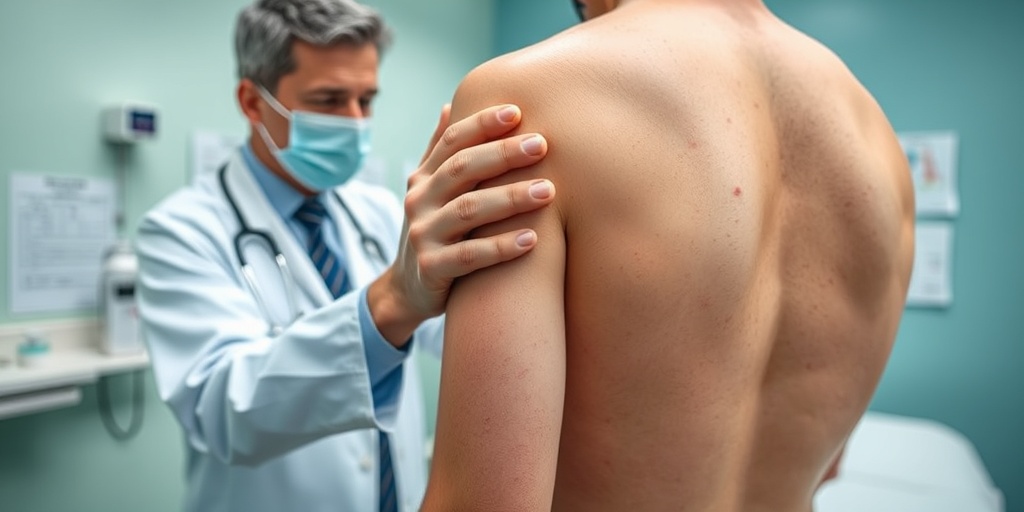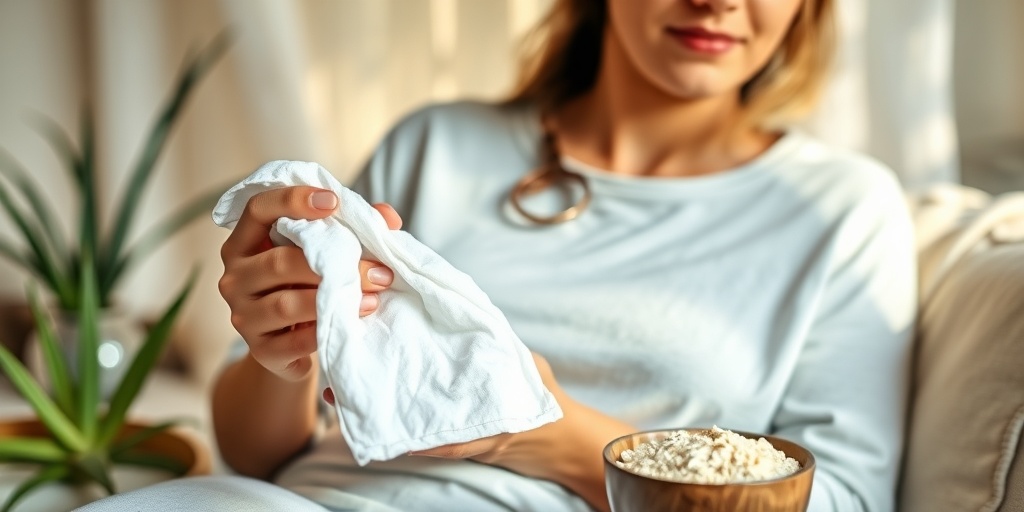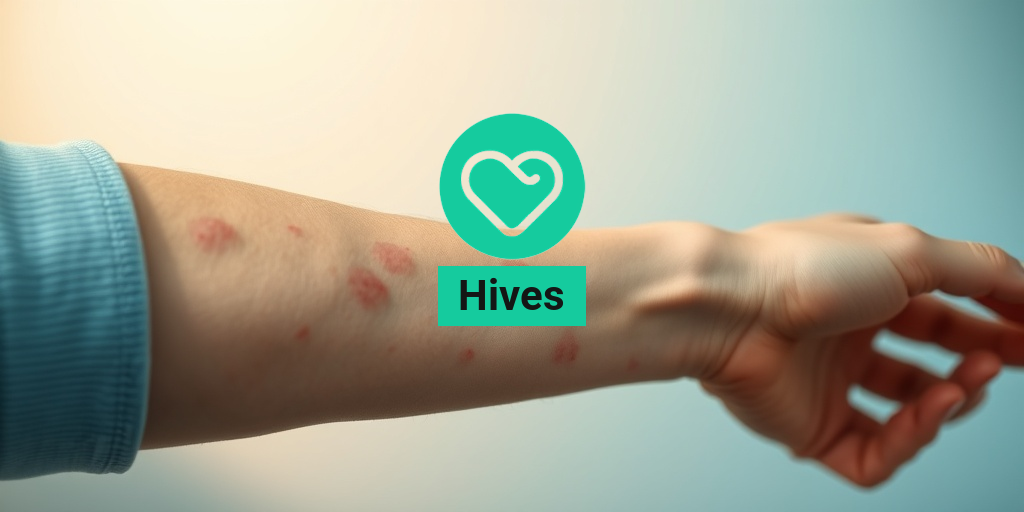What Are Hives?
Hives, also known as urticaria, are raised, itchy welts that can appear on the skin. They can vary in size and shape, often changing rapidly. Hives can be triggered by a variety of factors, including allergies, stress, medications, and even certain foods. Understanding what hives are and how they manifest is crucial for effective management and treatment.
Types of Hives
Hives can be classified into two main types:
- Acute Hives: These hives last less than six weeks and are often caused by allergic reactions to food, medications, or insect stings.
- Chronic Hives: Lasting more than six weeks, chronic hives can be more challenging to diagnose and may not have a clear trigger. They can be linked to underlying health conditions or autoimmune disorders.
How Hives Develop
When the body encounters an allergen or irritant, it releases histamines and other chemicals into the bloodstream. This release causes the blood vessels to leak, leading to the characteristic swelling and redness of hives. The welts can appear anywhere on the body, including the face, arms, and legs, and may be accompanied by a burning or stinging sensation.
Hives Symptoms
The symptoms of hives can vary from person to person, but they typically include:
- Itchy Skin: One of the most common symptoms, itching can range from mild to severe.
- Raised Welts: These can be small or large, and they may join together to form larger areas of swelling.
- Red or Skin-Colored: The welts can appear red or may be the same color as the surrounding skin.
- Swelling: In some cases, hives can cause swelling in deeper layers of the skin, known as angioedema, which may affect the face, lips, or throat.
When to Seek Medical Attention
While hives are often harmless and resolve on their own, there are instances when medical attention is necessary. If you experience any of the following symptoms, it’s important to seek help:
- Difficulty Breathing: This could indicate a severe allergic reaction.
- Swelling of the Face or Throat: This can also be a sign of a serious allergic reaction.
- Hives Lasting More Than Six Weeks: Chronic hives may require further investigation.
Managing Hives Symptoms
For those dealing with hives, there are several strategies to manage symptoms effectively:
- Antihistamines: Over-the-counter antihistamines can help relieve itching and reduce swelling.
- Cold Compresses: Applying a cold compress to the affected area can soothe itching and reduce inflammation.
- Avoiding Triggers: Identifying and avoiding known triggers can help prevent future outbreaks.
For more comprehensive information and evidence-based health answers, consider visiting Yesil Health AI. They provide valuable resources that can help you understand and manage your health better.
In conclusion, hives can be an uncomfortable and sometimes alarming condition, but with the right knowledge and management strategies, you can effectively cope with this skin issue. If you suspect you have hives or are experiencing symptoms, don’t hesitate to consult a healthcare professional for personalized advice and treatment options. 🌟

Hives Triggers
Hives, also known as urticaria, are raised, itchy welts on the skin that can vary in size and shape. They can appear suddenly and may last for a few hours or even days. Understanding the triggers of hives is crucial for effective management and prevention. Here are some common triggers that can lead to the development of hives:
Allergic Reactions
One of the most common causes of hives is an allergic reaction. This can occur due to:
- Food Allergies: Certain foods like nuts, shellfish, eggs, and dairy can trigger hives in sensitive individuals.
- Medications: Antibiotics, non-steroidal anti-inflammatory drugs (NSAIDs), and even some over-the-counter medications can cause hives.
- Insect Stings: Bee stings or bites from other insects can lead to hives in allergic individuals.
Environmental Factors
Environmental factors can also play a significant role in triggering hives. These include:
- Temperature Changes: Sudden changes in temperature, such as exposure to cold air or hot water, can provoke hives.
- Sunlight: Some individuals may develop hives after exposure to sunlight, a condition known as solar urticaria.
- Pressure: Physical pressure on the skin, such as tight clothing or prolonged sitting, can lead to hives.
Stress and Emotional Factors
Stress is another significant trigger for hives. Emotional stress can lead to the release of histamines in the body, resulting in itchy welts. It’s essential to manage stress through relaxation techniques, exercise, and mindfulness practices.
Infections
Viral infections, such as the common cold or flu, can also trigger hives. In some cases, bacterial infections may lead to hives as a response from the immune system. If you notice hives appearing alongside other symptoms of infection, it’s important to consult a healthcare professional.
Hives Diagnosis
Diagnosing hives can sometimes be straightforward, but in other cases, it may require a thorough evaluation. Here’s how healthcare providers typically diagnose hives:
Medical History Review
The first step in diagnosing hives is a comprehensive review of your medical history. Your doctor will ask about:
- Symptoms: When did the hives start? How long do they last? Are they itchy?
- Potential Triggers: Have you noticed any specific foods, medications, or environmental factors that coincide with the onset of hives?
- Family History: Do you have a family history of allergies or skin conditions?
Physical Examination
A physical examination is crucial in diagnosing hives. Your doctor will inspect the affected areas of your skin to assess the characteristics of the hives. They may also look for signs of other conditions that could mimic hives, such as rashes or infections.
Allergy Testing
If an allergic reaction is suspected, your doctor may recommend allergy testing. This can include:
- Skin Prick Tests: Small amounts of allergens are introduced to the skin to see if a reaction occurs.
- Blood Tests: These tests can measure specific antibodies in your blood that indicate an allergic response.
Additional Tests
In some cases, additional tests may be necessary to rule out other underlying conditions. These can include:
- Patch Testing: This test helps identify delayed allergic reactions.
- Biopsy: In rare cases, a skin biopsy may be performed to examine the skin tissue.
Understanding the triggers and diagnosis of hives is essential for effective management. If you experience persistent or severe hives, it’s important to seek medical advice to determine the underlying cause and appropriate treatment options. 🌟

Hives Treatment Options
Hives, also known as urticaria, are raised, itchy welts that can appear on the skin due to various triggers, including allergies, stress, or certain medications. If you’re experiencing hives, it’s essential to understand the available treatment options to alleviate discomfort and prevent future outbreaks. Here, we’ll explore both medical treatments and lifestyle adjustments that can help manage hives effectively.
Over-the-Counter Medications
One of the first lines of defense against hives is the use of over-the-counter (OTC) antihistamines. These medications work by blocking the action of histamine, a substance in the body that causes allergic symptoms. Some popular OTC antihistamines include:
- Loratadine (Claritin) – Non-drowsy option suitable for daytime use.
- Diphenhydramine (Benadryl) – Effective but may cause drowsiness, making it better for nighttime use.
- Cetirizine (Zyrtec) – Offers relief with a lower chance of drowsiness compared to Benadryl.
Always consult with a healthcare professional before starting any medication, especially if you have underlying health conditions or are taking other medications.
Prescription Medications
For more severe cases of hives, a doctor may prescribe stronger medications. These can include:
- Prescription Antihistamines – Higher doses or different formulations may be necessary for chronic hives.
- Corticosteroids – These can reduce inflammation and are typically used for short periods to manage severe outbreaks.
- Immunosuppressants – In cases of chronic hives that do not respond to other treatments, medications like cyclosporine may be prescribed.
Allergy Testing and Avoidance
Identifying the triggers of your hives is crucial for effective management. An allergist can perform tests to determine if specific allergens are causing your symptoms. Once identified, avoiding these triggers can significantly reduce the frequency and severity of hives outbreaks.
Alternative Therapies
Some individuals find relief through alternative therapies, including:
- Acupuncture – This traditional Chinese medicine technique may help reduce symptoms for some people.
- Probiotics – These beneficial bacteria can support gut health and may help in managing allergic reactions.
Hives Home Remedies
In addition to medical treatments, several home remedies can provide relief from hives. These natural approaches can help soothe the skin and reduce itching, making them a great complement to other treatments.
Cold Compress
Applying a cold compress to the affected areas can help reduce swelling and itching. Simply wrap ice in a cloth or use a cold pack, and apply it to the hives for 10-15 minutes. This method is especially effective for immediate relief. ❄️
Oatmeal Baths
Soaking in an oatmeal bath can be incredibly soothing for irritated skin. Colloidal oatmeal, which is finely ground oatmeal, can help relieve itching and inflammation. Just add it to your bathwater and soak for 15-20 minutes. 🛁
Aloe Vera
The natural anti-inflammatory properties of aloe vera make it an excellent remedy for hives. Applying fresh aloe vera gel directly to the affected areas can help cool the skin and reduce irritation. 🌿
Apple Cider Vinegar
Some people find that diluted apple cider vinegar can help alleviate itching and redness. Mix one part apple cider vinegar with three parts water and apply it to the hives with a cotton ball. However, be cautious, as it may irritate sensitive skin.
Stay Hydrated
Drinking plenty of water can help flush out toxins from your body and keep your skin hydrated. Staying well-hydrated may also help reduce the severity of hives outbreaks.
Stress Management
Since stress can be a trigger for hives, incorporating stress-reducing techniques such as yoga, meditation, or deep-breathing exercises can be beneficial. Finding ways to relax can help minimize the occurrence of hives. 🧘♀️
In conclusion, managing hives effectively involves a combination of medical treatments and home remedies. By understanding your triggers and utilizing these strategies, you can find relief and improve your quality of life.

Hives Prevention Tips
Hives, also known as urticaria, are raised, itchy welts on the skin that can be triggered by various factors, including allergens, stress, and certain medications. While they can be uncomfortable and distressing, there are several effective strategies to help prevent hives from occurring. Here are some practical tips to keep those pesky welts at bay:
1. Identify and Avoid Triggers
The first step in preventing hives is to identify what triggers your outbreaks. Common triggers include:
- Food Allergies: Common culprits include nuts, shellfish, eggs, and dairy.
- Environmental Factors: Pollen, pet dander, and dust mites can provoke hives.
- Medications: Certain antibiotics and non-steroidal anti-inflammatory drugs (NSAIDs) may cause reactions.
- Stress: Emotional stress can lead to hives in some individuals.
Keeping a hives diary can help you track your outbreaks and identify patterns related to your triggers.
2. Maintain a Healthy Lifestyle
Adopting a healthy lifestyle can significantly reduce the frequency of hives. Here are some tips:
- Balanced Diet: Eating a diet rich in fruits, vegetables, whole grains, and lean proteins can boost your immune system.
- Regular Exercise: Physical activity can help reduce stress and improve overall health.
- Hydration: Staying well-hydrated helps maintain skin health and can prevent flare-ups.
3. Manage Stress Effectively
Since stress is a known trigger for hives, finding effective ways to manage it is crucial. Consider incorporating the following practices into your routine:
- Meditation: Mindfulness and meditation can help calm your mind and reduce stress levels.
- Yoga: This practice combines physical movement with breathing techniques, promoting relaxation.
- Deep Breathing Exercises: Simple breathing exercises can help alleviate stress in moments of anxiety.
4. Dress Appropriately
Wearing the right clothing can also help prevent hives. Opt for:
- Loose-fitting Clothes: Tight clothing can irritate the skin and trigger hives.
- Natural Fabrics: Cotton and other breathable materials can help keep your skin comfortable.
5. Use Hypoallergenic Products
Switching to hypoallergenic skincare and laundry products can minimize the risk of skin irritation. Look for:
- Fragrance-free Soaps and Lotions: These are less likely to cause allergic reactions.
- Gentle Laundry Detergents: Choose products designed for sensitive skin.
Hives: When to See a Doctor
While many cases of hives are mild and resolve on their own, there are instances when medical attention is necessary. Knowing when to seek help can prevent complications and ensure proper treatment. Here are some indications that you should consult a healthcare professional:
1. Persistent Hives
If your hives last longer than six weeks, it’s essential to see a doctor. Chronic hives may indicate an underlying health issue that requires investigation.
2. Severe Symptoms
Seek immediate medical attention if you experience:
- Difficulty Breathing: This could be a sign of anaphylaxis, a severe allergic reaction.
- Swelling of the Face or Throat: This can also indicate a serious allergic reaction.
- Rapid Heartbeat: Accompanied by other severe symptoms, this may require urgent care.
3. Accompanying Symptoms
If your hives are accompanied by other concerning symptoms such as fever, joint pain, or abdominal pain, it’s advisable to consult a healthcare provider. These symptoms may indicate a more serious condition.
4. Over-the-Counter Treatments Aren’t Working
If you’ve tried over-the-counter antihistamines without relief, it’s time to see a doctor. They may prescribe stronger medications or investigate further to determine the cause of your hives.
In conclusion, understanding how to prevent hives and knowing when to seek medical help can significantly improve your quality of life. By taking proactive steps and being aware of your body’s signals, you can manage hives effectively. 🌼

Frequently Asked Questions about Hives
What are hives?
Hives, also known as urticaria, are raised, itchy welts on the skin that can vary in size and shape. They are often a reaction to allergens, medications, or other triggers.
What causes hives?
Hives can be triggered by various factors, including:
- Allergic reactions to foods, medications, or insect stings
- Environmental factors like pollen or pet dander
- Stress or anxiety
- Infections or illnesses
How can I identify hives on my skin?
Hives typically appear as raised, red or skin-colored welts that may be itchy. They can occur anywhere on the body, including the face, and may change in size or shape over time.
Are hives contagious?
No, hives are not contagious. They are a skin reaction and cannot be spread from person to person.
What is the difference between hives and a rash?
While both hives and rashes can cause skin irritation, hives are characterized by raised welts and are often itchy, whereas rashes can have various appearances and may not always be itchy.
How are hives treated?
Treatment for hives often includes:
- Antihistamines to relieve itching and swelling
- Avoiding known triggers
- In severe cases, corticosteroids may be prescribed
When should I see a doctor for hives?
If you experience severe symptoms, such as difficulty breathing, swelling of the face or throat, or if hives persist for more than a few days, it is important to seek medical attention immediately. 🚑
Can hives be a sign of a more serious condition?
In some cases, hives can indicate an allergic reaction that may lead to anaphylaxis, a life-threatening condition. If you notice symptoms like swelling or difficulty breathing, seek emergency help.
How long do hives last?
The duration of hives can vary. Acute hives may last a few hours to a few days, while chronic hives can persist for weeks or longer. If you have concerns about the duration, consult a healthcare professional.
Can lifestyle changes help manage hives?
Yes, making certain lifestyle changes can help manage hives. Consider the following:
- Identifying and avoiding triggers
- Managing stress through relaxation techniques
- Maintaining a healthy diet
Are there any home remedies for hives?
Some people find relief from hives using home remedies such as:
- Cold compresses to soothe the skin
- Oatmeal baths to reduce itching
- Applying aloe vera gel for its soothing properties
Can hives occur on the face?
Yes, hives can appear on the face, and they may cause swelling and discomfort. If you experience facial hives, especially with other symptoms, consult a healthcare provider.




